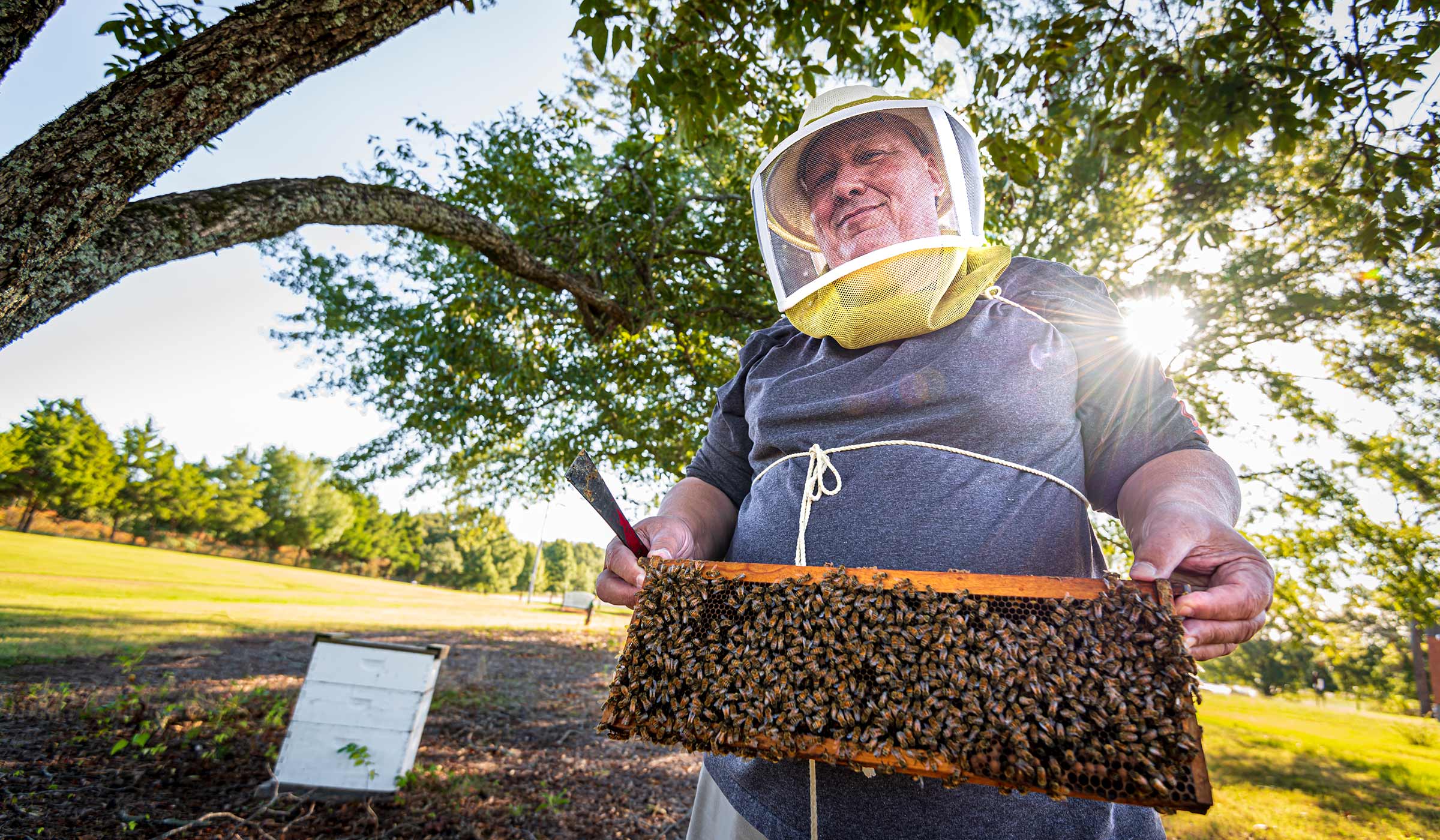
Lecture title: All About the Birds and the Bees
Lecture description: In this autobiographical presentation, Dr. Harris shares his journey in reconciling a lifelong affection for honey bees with a deep commitment to native wildlife—especially birds and indigenous pollinators. Honey bees, though essential to agriculture and the pollination of many wild plants, are not native to North America and can out-compete native pollinators at flowering resources. Their economic value, estimated at $20 billion annually in the United States, often overshadows these ecological concerns.
As both an avid beekeeper and a passionate birder, Dr. Harris struggled with the perceived divide between these communities. He worried that enthusiasts of native species might resent his enthusiasm for honey bees, while beekeepers might view his love of bird watching as eccentric or stereotypical. For years, he lived as though these interests did not intersect.
Over time, however, Dr. Harris came to appreciate that honey bees and native pollinators can coexist, each playing an important role in sustaining broader ecosystems—including the survival of songbirds. This talk will explore his gradual transformation in perspective and highlight the intricate interdependence of animal species within food webs rooted in native pollinator communities.
Bio: Dr. Jeff Harris is a beekeeping extension specialist at Mississippi State University in Starkville, MS. He started beekeeping when he was 8 years old and now has over 50 years of experience with bees, including work in a commercial beekeeping operation in Montgomery, AL. After receiving his doctoral degree from LSU, he spent over 15 years researching various aspects of honeybees at the USDA-ARS in Baton Rouge. He bred honey bees to resist varroa mites. He has recently shifted his research focus to studying acaricide resistance in Varroa mites and developing safer miticides for their control. His current duties include extension (77%), teaching (10%), and research (13%).

